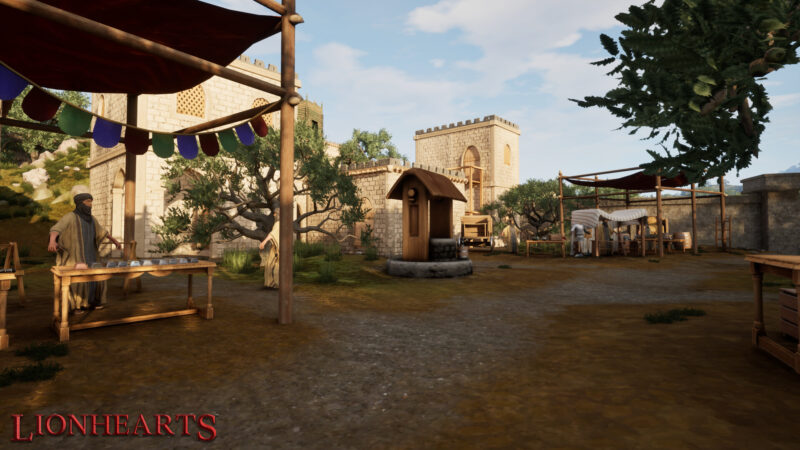A few weeks back, we introduced a new strategy MMO called Lionhearts, a game that evolved from a Roblox title developed by indie studio Credenzio. The game has now launched an official Kickstarter crowdfunding campaign. Entry-level pledges are quite affordable, with pre-alpha demo access starting at just $10, while the full game requires a $50+ pledge.
Credenzio describes Lionhearts as “a medieval world where you shape history. Lead armies, build trade empires, or rise to religious prominence in a player-driven persistent multiplayer feudal simulator: a living medieval open world where every player’s choices shape history.” The studio emphasizes historical authenticity in its 12th-century European medieval setting, player-driven politics and trade, player housing, territorial conquest, and 12 player-run kingdoms.
As of now, the Kickstarter has raised over $50,000 of its $100,000 goal, with 160 backers and 28 days remaining in the campaign. Interestingly, the Kickstarter FAQ explicitly states that Lionhearts is not an MMO, defining the genre in an unconventional way: “This game is not an MMO by genre. Instead of relying on quests and experience, Lionhearts relies on favor and real player-driven hierarchy progression. In this way, it does not feel or operate like any typical MMO – hence the name ‘Persistent Feudal Simulator’!”
However, since none of those criteria are definitive for an MMORPG or MMO, the game is labeled as both on Steam. It’s challenging to argue that Lionhearts isn’t an MMO, given its single-shard persistent world featuring thousands of players engaging in PvP, trading, and managing factions. It aligns with the MMORPG lineage of games like EVE Online, Shadowbane, Ashes of Creation, Anvil Empires, and Myth of Empires. Welcome to the genre!
For MMORPG players, a key point of interest is the developers’ promise that “monetization will remain ethical, with no pay-to-win, microtransactions, or exploitative mechanics.” However, the very next line mentions limited-time donor rewards such as land and titles, which raises questions about the definition of pay-to-win. Kickstarter rewards include perks like extra favor, gold, weapons, instanced housing spaces, decor, rosaries, prayers, statues, housing plots, physical buildings, guild crests, custom outfits, and even lordships and temporary “immunity from coups and takeovers.” For example, a $10,000 pledge grants the backer the title of Duke of their own duchy and in-game gold valued at $16,650. It’s unclear what Credenzio considers pay-to-win if these rewards don’t qualify.
The developers plan to release a pre-alpha demo in Q1 of next year. Check out the trailers below:















